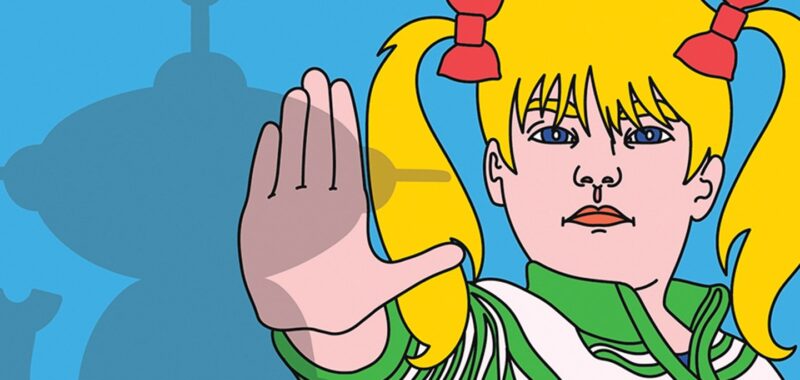Last year, Kartoon Studios (then Genius Brands) unveiled two educational animated series that were almost completely created by artificial intelligence. ChatGPT wrote the scripts, with other AI tools generating the animation and voicing the characters.
In one, Warren Buffett’s Secret Millionaires Club — intended to teach kids financial literacy — a 3D animated Buffett is featured as a talking head speaking to the significance of mentors. Cartoon renderings of a piggy bank and a multigenerational family flash in the background, along with streaking brushes of color.
“So remember, the trick to life is knowing who to be the bat boy for,” the famed investor says as a stock image of a baseball player shoots across the screen. “This is important to understand if you want to be a home run hitter!”
The animated shorts series’ release — which includes episodes titled “Did You Know These Facts about Computers?” and “The Tallest Animal in the World!” — coincided with the start of the AI frenzy. Some companies, especially those that don’t operate under the constraints of labor deals, predicted an industry-wide blitz to adopt the technology, particularly in the kids space, where some may cynically suppose younger audiences won’t notice.
“The future of children’s entertainment is here, and we’re thrilled to be at the forefront of this revolution,” says Kartoon Studios chief executive Andy Heyward in a statement. President Todd Steinman stresses that AI provides “significant cost efficiencies and speed to market,” allowing the company to “expand our content initiatives and fuel our programming pipeline in a way that couldn’t have been possible before.”
The shows have failed to take off. Since last year, roughly 20 episodes have been released. They collectively have less than 40,000 views on YouTube and are among the least watched content on the company’s accounts.
Among several reasons why: Production heads aren’t lining up to make cheaper content with the technology when it dilutes quality.
Asked about the issue on Netflix’s July 18 earnings call, co-CEO Ted Sarandos replied that AI “is going to generate a great set of creator tools, a great way for creators to tell better stories,” but noted “there’s a better business and a bigger business in making content 10 percent better than it is making it 50 percent cheaper.” He underscored that audiences “largely care mostly about connecting with the storytelling.”
Moonbug Entertainment CCO Richard Hickey echoed the sentiment. While the company, which owns children’s animation juggernaut CoComelon, is experimenting with the technology, he told The New Yorker that there’s currently “zero” AI in the series as it explores “where the benefit is, for raising the bar creatively.”
There are also legal guardrails around use that are staving off adoption. The U.S. Copyright Office doesn’t grant copyrights to machine-generated works, limiting exploitation of such material. Studios are wary. “Contracts say you need to ask permission of studios, and a lot of studios’ policies is that it’s simply not allowed,” said showrunner and writer Mark Goffman (Bull, Limitless, The West Wing) at AI on the Lot, a conference about AI in the entertainment industry, in May.
That’s not to say some creators aren’t embracing the tools in some parts of production. Animation house Toonstar, home of animated series StEvEn & Parker, launched a dedicated AI studio in January for digital creators to create low-cost content and streamline production. Co-founders John Attanasio and Luisa Huang estimate their proprietary tools make production 80 percent faster and at a fraction of the cost of industry norms. They point to time-consuming, monotonous tasks like animating hands in various states of change.
Other productions are planning more novel uses of the tech. PBS Kids series Lyla in the Loop will release interactive episodes that incorporate AI-assisted conversations between audiences and the show’s titular character, who responds to viewer questions using AI.
“I don’t think I’d be doing what I’m doing now without the tech at Toonstar,” says StEvEn & Parker creator Parker James. “I can come up with any idea, and they can execute within 24 hours.”
This story first appeared in the August 14 issue of The Hollywood Reporter magazine. Click here to subscribe.

